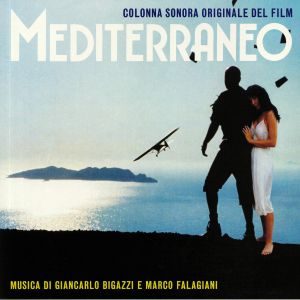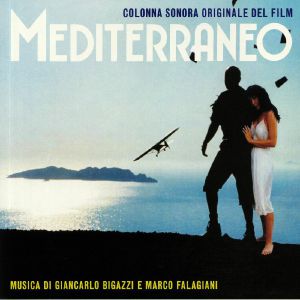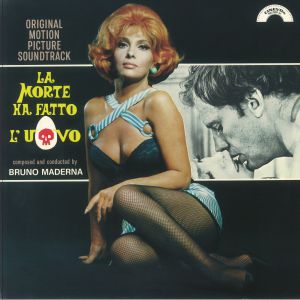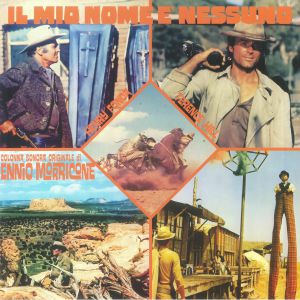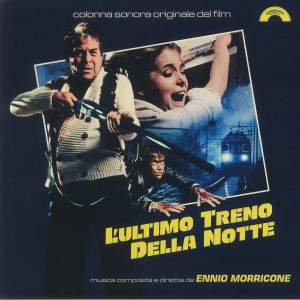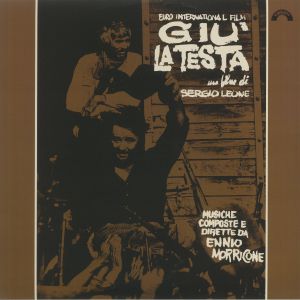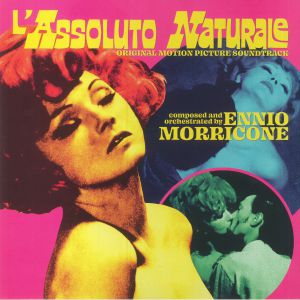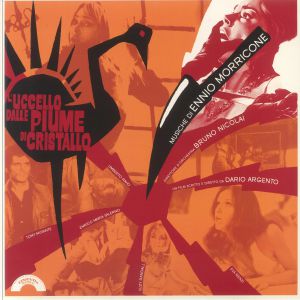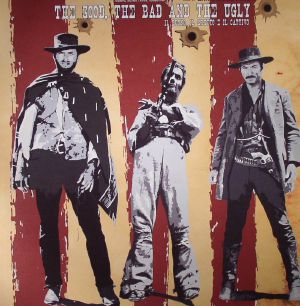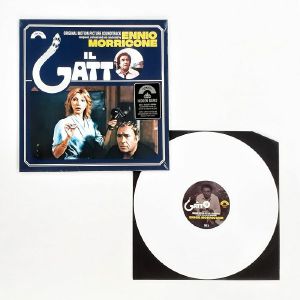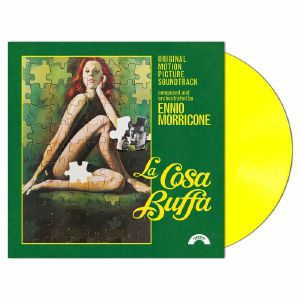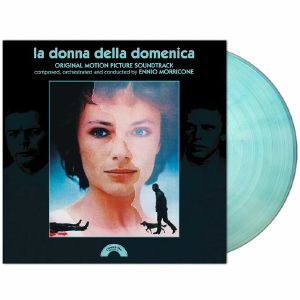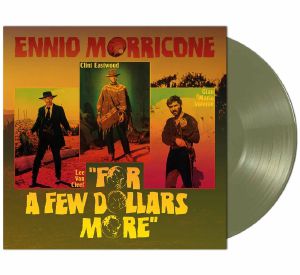Filter
在庫状況
Type
音楽
フォーマット
レーベル
Featured
リリースタイトル
値段
タグ
Back catalogue: Leftfield
Juno's full catalogue of Leftfield
アルバム
Mediterraneo (Soundtrack) (limited blue vinyl LP)
Cat: AMSLP 156. Rel: 05 May 20
Played by: Yiannis 'Nova' Dorakis, Manu Archeo
in stock $26.36
Mediterraneo (Soundtrack) (B-STOCK) (limited blue vinyl LP)
Cat: AMSLP 156 (B-STOCK). Rel: 01 Jan 90
B-STOCK: Slight dent on the edge, otherwise in perfect condition
in stock $20.39
La Morte Ha Fatto L'Uovo (Soundtrack) (reissue) (limited orange vinyl LP + insert)
Cat: LPOST 034. Rel: 10 Jun 24
in stock $31.92
Il Mio Nome E'nessuno (Soundtrack) (reissue) (limited gatefold 180 gram clear vinyl LP)
Cat: AMSLPC 66. Rel: 31 May 22
in stock $31.08
L'ultimo Treno Della Notte (Soundtrack) (limited gatefold 180 gram yellow vinyl LP)
Cat: LPOST 020Y. Rel: 22 Mar 22
in stock $31.64
Giu' La Testa (Soundtrack) (limited clear vinyl LP)
Cat: LPOST 021C. Rel: 08 Nov 21
Review: RECOMMENDED
It has been just over 12 months since Ennio Morricone passed away, aged 91, and if it were up to use there would have been a non-stop stream of reissues from the Italian maestro's back catalogue to help people either remember or discover what made his work so important. It's hard to comprehend, but during his career he wrote more than 400 scores for TV and cinema, alongside around 100 classical works. That's some contribution.
Giu' La Testa is one of many he worked on to accompany a Sergio Leone Spaghetti Western - with the pair collaborating on all but the latter's directorial debut. From whichever angle you're listening, this is the epitome of that relationship, with tracks veering from deeply atmospheric to playful, Romantic and wistful to cautiously adventurous. Exceptional stuff from a genuinely irreplaceable practitioner.
… Read moreIt has been just over 12 months since Ennio Morricone passed away, aged 91, and if it were up to use there would have been a non-stop stream of reissues from the Italian maestro's back catalogue to help people either remember or discover what made his work so important. It's hard to comprehend, but during his career he wrote more than 400 scores for TV and cinema, alongside around 100 classical works. That's some contribution.
Giu' La Testa is one of many he worked on to accompany a Sergio Leone Spaghetti Western - with the pair collaborating on all but the latter's directorial debut. From whichever angle you're listening, this is the epitome of that relationship, with tracks veering from deeply atmospheric to playful, Romantic and wistful to cautiously adventurous. Exceptional stuff from a genuinely irreplaceable practitioner.
Played by: Manu Archeo
in stock $30.53
L'Assoluto Naturale (Soundtrack) (reissue) (limited 180 gram pink vinyl LP)
Cat: LPOST 026. Rel: 23 Jun 22
Played by: Juno Recommends Leftfield
in stock $31.08
Cat: LPOST 052B. Rel: 07 Mar 25
in stock $30.25
in stock $31.08
Il Gatto (Soundtrack) (limited white vinyl LP)
Cat: LPOST 039. Rel: 05 Jul 24
Review: Ennio Morricone's score for Il Gatto is a standout in his work for Italian Giallo films. Though the story got mixed reviews, Argento's direction and Morricone's music elevate the film with its tension-building, subconscious fear-stoking and gorgeous cinematography. The score is marked by a jazz-influenced bass guitar and a five-note motif, expanded upon with diverse instruments like strings, high-pitched organs, eerie woodwinds and ghostly voices. While repetitive textural ideas form the score's heartbeat, subtle musical accents keep it intriguing. This score masterfully enhances the film's nightmarish atmosphere. The track 'Mariangela E La Seduzione)' offers a rare semi-sweet melody, while the track 'Quartetto Tiberini' adds depth to the overall experience. Morricone's terrifying, hallucinatory score for Il Gatto is among his finest work.
… Read more in stock $34.69
La Cosa Buffa (Soundtrack) (reissue) (limited yellow vinyl LP)
Cat: LPOST 038. Rel: 08 Oct 24
Review: Ennio Morricone's La Cosa Buffa is a brilliant 1972 soundtrack that beautifully captures the emotional breadth of Aldo Lado's sentimental drama. The score, celebrated for its lush orchestration and hypnotic themes, features an array of string and harpsichord variations, with Edda Dell'Orso's haunting, wordless vocals enhancing the romantic atmosphere. The album, reissued on vibrant yellow vinyl to mark its 50th anniversary, showcs Morricone's exceptional ability to blend dreamy and groovy elements, making it accessible yet deeply evocative. Remastered by Claudio Fuiano, this edition includes a faithful reproduction of the original film poster, adding to its collectible appeal. Notably, the score diverges from Morricone's more intense giallo work, presenting a more melodious and dramatic soundscape. The catchy 'Ballabile N.1' and 'N.2' tracks offer a playful nod to 60s beat music, further enriching the album's varied texture. La Cosa Buffa is a signature example to Morricone's movie magic helping him remain as influential and beloved as ever.
… Read more in stock $33.29
La Donna Della Domenica (Record Store Day RSD 2024) (limited translucent blue vinyl LP)
Cat: LPOST 065. Rel: 27 Apr 24
Review: Ennio Morricone's soundtrack for La Donna Della Domenica is yet another masterful display of the great composer's musical prowess. Released in 1975, this score seamlessly blends elements of jazz, funk, and classical music, reflecting the film's noir atmosphere. Morricone's compositions evoke a sense of mystery and suspense, enhancing the on-screen drama, and that is true again here. Tracks like 'La Donna Della Domenica' and 'La Lucertola' showcase his ability to create haunting melodies and intricate arrangements. With its diverse instrumentation and emotive themes, Morricone's score for La Donna Della Domenica remains a captivating listen, underscoring his status as one of cinema's greatest composers.
… Read more in stock $33.02
For A Few Dollars More (reissue) (Soundtrack) (limited gatefold 'cactus' green vinyl LP)
Cat: AMSLP 166G. Rel: 04 Apr 24
in stock $31.08

 USD
USD






